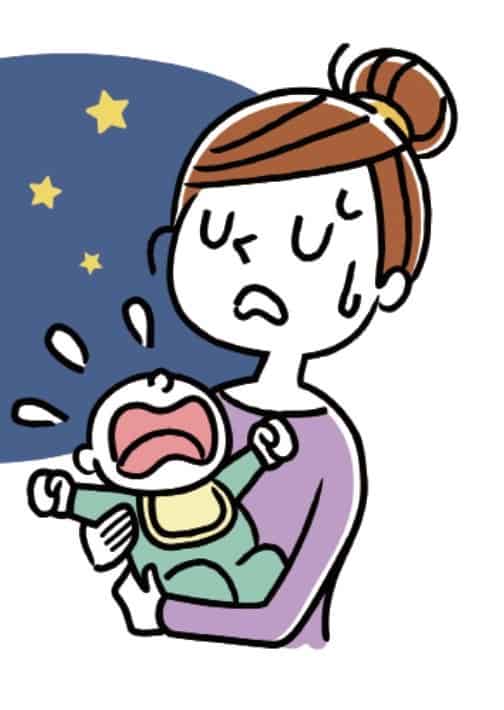
Newborns are known for waking around the clock. As babies mature, most sleep in longer chunks of time. But infants who show disturbed sleep patterns throughout the first year could be at greater risk for developing anxiety later in childhood, according to a new study.
The study, published March 9 in the journal Archives of Disease in Childhood, tracked 1,507 first-time mothers and their babies and found that one in five infants had persistent sleep problems during that first year.
“A lot of the infants were waking up quite a lot at 3 months, and that’s normal, but we found that around 19% really had persistent and severe sleep problems that were troublesome right across that first year,” said Fallon Cook of the Murdoch Children’s Research Institute in Melbourne, Australia, who led the research.
“These are babies who, even by 12 months of age, are still waking three or more times during the night,” she said. “And they might be taking up to an hour to go to sleep, and they are very difficult to settle when awake during the night.”
The longitudinal study asked mothers to describe their baby’s sleep patterns at 3 months, 6 months, 9 months and 1 year, according to a March 9 article on CNN. Later, they were asked about their child’s mental health at ages 4 and 10.
Those with severe sleep difficulties in their first year were nearly three times as likely to have symptoms of emotional problems when they were age 4. By the time these children were 10, they were more than twice as likely to meet the criteria for an emotional disorder, the article said.
“These infants were more likely to experience elevated symptoms of separation anxiety, fear of physical injury and overall elevated anxiety than settled infants,” according to the study.
The researchers cautioned that fluctuating sleep is normal. “The ones we need to keep an eye on are the ones that have very persistent, severe difficulties,” Cook said.
“It’s important we don’t stress out parents even more. If your baby isn’t sleeping well, often you feel guilty because you think you’re not getting things right,” she added. “Talk to your family doctor about what support services are available locally. It can be life-changing for families to have the baby sleep a little better.”



